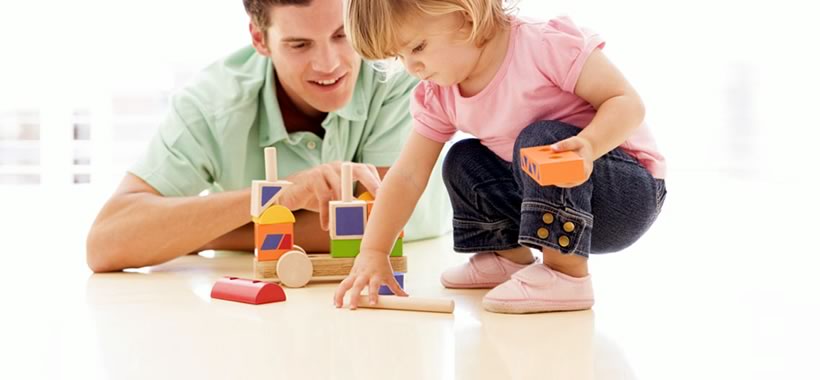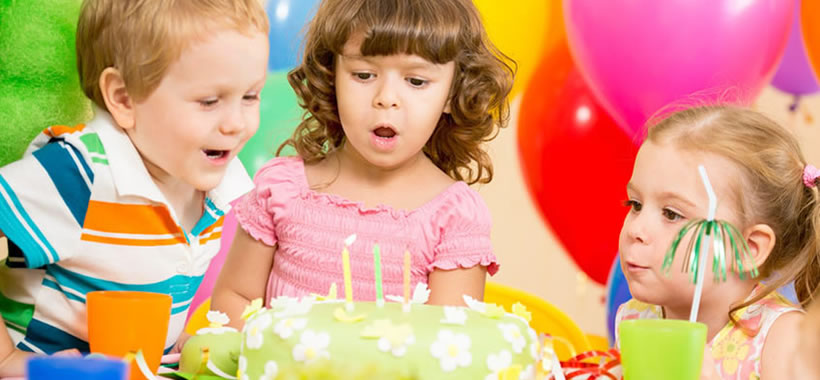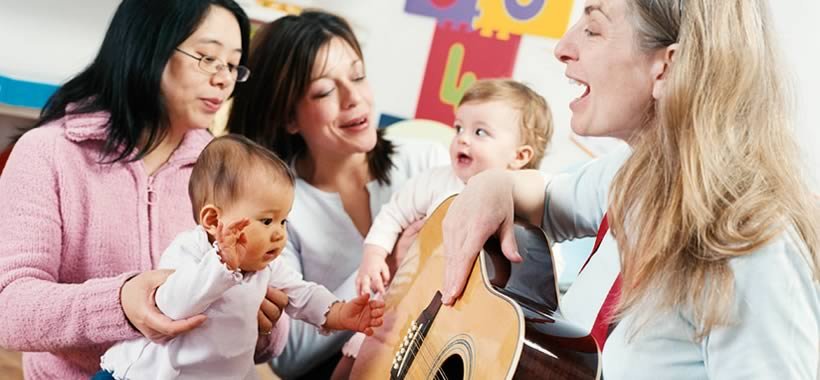Children are constantly discovering new things – and best of all, by playing. An expert explains how you can promote your little one

When playing with building blocks, children train fine motor skills and coordination
Playing is not only fun, it is also very important for the development of children. "Playing is the basic condition for all learning and educational processes in life", says child and adolescent psychotherapist Hedi Friedrich from Frankfurt.
Even the little ones are playing – babies discover their surroundings: What does the rattle actually do? And what happens when I throw the brick on the floor? "Babies and toddlers develop their practical intelligence", explains Friedrich. From around two years of age, the symbol game, pretending to be, also becomes more important. Children train very different areas. The psychotherapist explains: "By agreeing with peers and adults, the little ones improve language and communication". The older the children are, the more actions are replaced by words.
This way of playing gradually becomes role-playing about. Children take different perspectives and practice to understand other people and to put themselves in someone else’s shoes. Roughly speaking, children train three areas at games: their senses, communication skills and social skills.
Children process what they have experienced in the game
In addition to curiosity and interest in things, physical activity also comes into play when the senses work together. Balance, sight, hearing and touch develop in the same way further like skill. This makes the child more independent, but also more confident. If it alone can determine what it wants to do, it also learns that it can make a difference. Psychologists consider the feeling of self-efficacy to be very important.
Children need space to live out their imaginations. Especially if they are free to choose the topic of the game, they can deal with what they have experienced and process it. Instead of just being the pediatrician patient, as a teddy doctor they now slip into the role of the practitioner. And if the well-behaved cuddly bear can bear the injection without complaint, then the child will surely be able to do it the next time he visits the doctor. This approach, by the way, is the basis for game therapy, in which little patients can express themselves without words and through their play allow an insight into their subconscious.
Adults are always with you
Parents can promote their children’s natural play instinct through certain toys. For example, how about building a garage for your favorite cars yourself instead of buying them in the store for expensive money? Whether made of colorful building blocks, wood or stones – it is important that the imagination of the little ones is stimulated. If a part is missing, a replacement must be obtained. This way children learn not to give up so quickly and to solve problems themselves. Anything that does not only fulfill a function is permitted, for example wooden and plug-in blocks, a wide variety of natural materials or even cladding.
Let your child take care of it for himself – although you should of course still make sure that nothing happens. Instead of getting constant suggestions, the little one can be bored. Anyone who is only fun in their surroundings will find it difficult to engage and motivate themselves later in life.
Adults are important role models for the little one. Because children learn best depending on the situation. "For example, if they help with cooking or tidying up, they usually have a lot of fun and learning incidentally, to handle the cooker and the vacuum cleaner properly", so Friedrich. The focus should be on what interests the children. Maybe these are the potatoes from the field next door, where they not only get to know the processes in the field and on the farm, you can even use them to cook delicious food or to create great stamped art.
Play or learn? In children, that belongs together
When choosing a day care center, parents can also take a few things into account so that their child can play optimally. "Small groups are recommended, otherwise children will quickly feel overwhelmed", advises Hedi Friedrich. "Ideally, the educators do not change too often or constantly have to leave the group because the little ones need permanent caregivers to feel safe and in good hands". If you are constantly busy adapting to a new situation, you will not be able to play enough.
The best way to learn in daycare is in everyday life. If there is a change of decorations, then of course the little ones want to and should tinker with them, baking cookies together during Christmas is fun, everyone can help with watering the flowers, and busy walks through the forest are collecting colorful leaves. This is how children learn to deal with everyday objects in a playful way. You can witness processes like the growth of plants and find out how the world around them works. Important: nature must not be missing. Children should be able to go out and play there. Ideally, educators let the little ones design and discover on their own, but are always there to accompany them.
The little ones need situation-related educational offers and the opportunity to play freely. Because the ability to learn is greatest in early childhood. But doesn’t that mean that the youngsters should then learn as many skills as possible for school and later life?
Yes, but that’s what he does best by playing. The decisive factor in learning is the child’s own initiative – it learns what it wants and can do on its own. Interest plays a major role in this. Stubborn ten is too boring for many. But when it comes to finding exactly ten blue balls as quickly as possible, most are thrilled. Educational games are also an option. The motivation comes from outside, an adult gives impulses to which children then react. The little ones need these suggestions because they learn to adapt and to follow rules.
RELATED ITEMS
-

Migrate in children: what helps against it – baby and family
Children also suffer from migraine attacks: stress can trigger headaches. How parents can help their little ones This video explains…
-

Children’s birthday: celebrate without stress! Baby and family
Where to celebrate Invite someone? Which games? What’s for dinner? Many parents panic at the thought of children’s birthday. With our tips…
-

Foreign languages: from what age? Baby and family
Whether early English or bilingual kindergarten – there are already foreign language offers for babies. Do they make sense? Learn languages: the earlier, the more…
-
Babies and toddlers: learn, encourage, stimulate – family – society – planet knowledge
New Development Research Section – What Happens in Children. Planet knowledge. December 16, 2019. 06:01 min. Available until 16.12.2024. WDR. Babies and…
